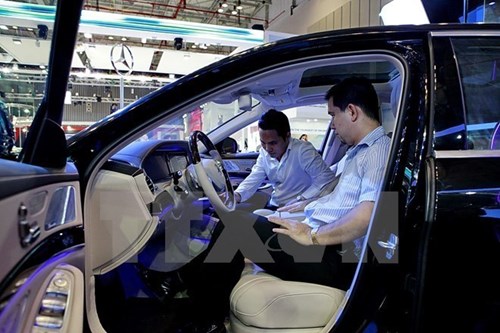October 11, 2018 | 12:25 (GMT+7)
Vietnam imports over 11,000 cars in nine months
Vietnam imported 11,172 cars between in the first nine months of 2018, up 5,142 units from the same period last year, according to the General Department of Vietnam Customs.
Of the figure, more than 10,800 (equivalent to 92 percent) were imported from Thailand and Indonesia. The remainder came from Japan, the US and Germany.
Cars with nine or fewer seats shipped to ports in Ho Chi Minh City accounted for more than 51 percent of total car imports to Vietnam. Of these smaller vehicles, 93.5 percent came from Southeast Asian countries and benefited from the regional import duty exemption, in line with the ASEAN countries’ commitments to lower tariffs from 2018.
    |
 |
|
Vietnam imported 11,172 cars in the first nine months of 2018. (Photo for illustration) |
It is predicted that tens of imported auto models will enter the Vietnamese market in the last months of the year, including Mitsubishi Xpander, Mazda BT 50, Ford Everest, Toyota Wigo, and Honda HR-V.
Vietnamese businesses spent 2.5 billion USD importing auto parts in the reviewed period.
Japan was the largest source of imported car components, with Japanese imports valuing at 591 million USD for the first nine months of the year. Japan was followed by the Republic of Korea at 560 million USD and China at 465 million USD.
The General Department of Vietnam Customs said that most of these parts were engines, chassis and specialised technology that cannot be made in Vietnam unless manufacturers invest in transferring manufacturing technology to the country.
The parts from Thailand, India and Indonesia were mostly electric cables and steel imported by Toyota, Ford and Nissan for use by domestic car makers.
Vietnamese businesses also imported tires, rubber and leather for use in trucks and passenger cars. Electrical equipment was imported from China.
Source: VNA